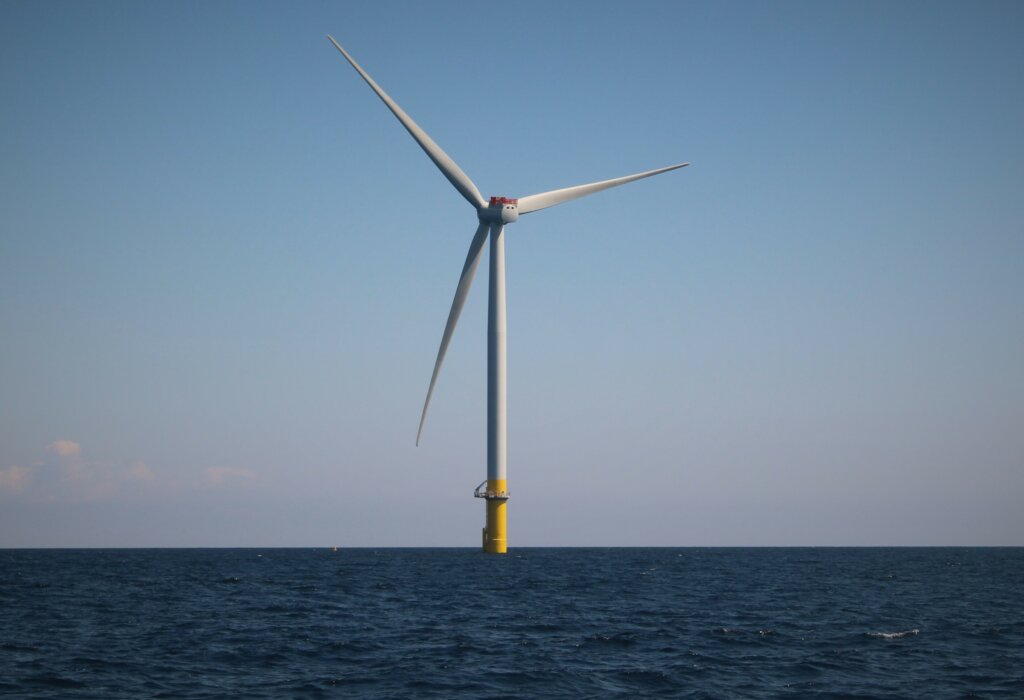Trump presidency could stunt New Jersey’s renewable goals
November 29, 2024

President-elect Donald Trump’s return to the White House could derail New Jersey’s ambitious clean energy goals.
Trump on the campaign trail pledged to claw back unspent funds from the federal Inflation Reduction Act, whose clean energy tax credits helped fuel a renewables boom, and in May, he vowed to halt offshore wind projects on his first day in office, repeating debunked claims about wind surveying work’s impact on marine mammals.
“The windmills are driving them crazy. They are driving the whales, I think, a little batty,” Trump said at a September rally in South Carolina.
His broad opposition to New Jersey’s ambitious renewable energy goals — which include a call for the state to draw 100% of its power from renewable sources by 2035 — could stymie development of wind and solar projects in the state.
Gov. Phil Murphy, who has backed clean energy projects since entering office in 2018, earlier this month said he would seek to convince the incoming administration with economic arguments rather than ones based on climate change, though he acknowledged renewables could be a hard sell in Trump’s second term.
“It’s a ridiculous bridge that’s been built between smart, sensible energy policy that allows us to not have to import energy but make us an export state, union jobs, construction jobs, clean energy in the most densely populated American state,” he said on a radio show earlier this month. “It checks so many boxes, and yet it’s gotten this woke label, which is ridiculous.”
Though Republicans are set to control both chambers of Congress in addition to the presidency, it remains to be seen whether rank-and-file lawmakers will back a wholesale repeal of the Inflation Reduction Act.
The law has sent federal funds for clean energy projects to a host of states, including numerous Republican ones.
But even if Trump’s opposition to the law faces resistance from his own party, he may be able to derail other renewable projects through the federal permitting process.
Projects on federal land require federal approval, and a Trump administration could move to block wind farms in federal waters and solar farms on federal lands, like those called for by an Aug. 29 Biden administration plan to erect expansive solar farms in 11 western states.
But wind projects, which have faced repeated hurdles amid escalating costs and complicated regulatory regimes in recent years, could be insulated somewhat from federal permitting because the long timelines involved in such projects could take them past the end of Trump’s second term, said environmental activist Dave Pringle.
“The good news, bad news of offshore wind projects is they have a very long time horizon,” Pringle said.
Critics of Murphy’s green energy policies hope a Trump presidency would encourage New Jersey to pursue a more diverse energy future over the coming decades rather than an all-out and expensive push for fully renewable generation.
“Part of the problem that we have as an economy is all of a sudden they want to literally turn the switch off and go onto this … all electric-generating even though we don’t have the capacity,” said Sen. Joe Pennacchio (R-Morris).
The fate of New Jersey’s renewable projects may well depend on whether officials can convince the Trump administration their endeavors are rooted in economics rather than environmentalism, and officials are already making that argument.
“I hope the president sees this is not a granola, quote-unquote, endeavor just because we want to look like we’re woke. This is cold-blooded capitalism, and this is smart energy policy for America,” Murphy said.
YOU MAKE OUR WORK POSSIBLE.
Search
RECENT PRESS RELEASES
Related Post



